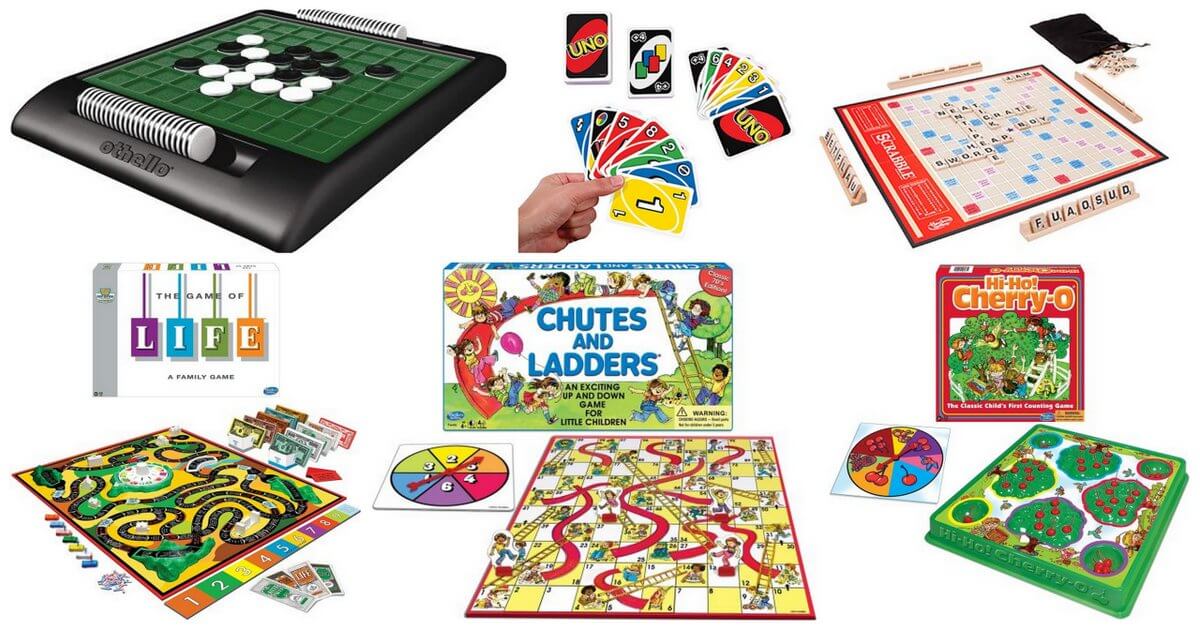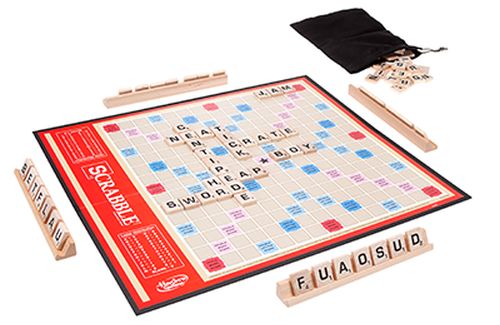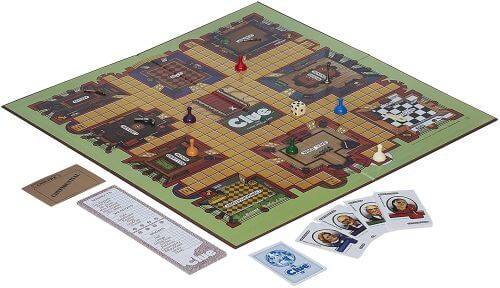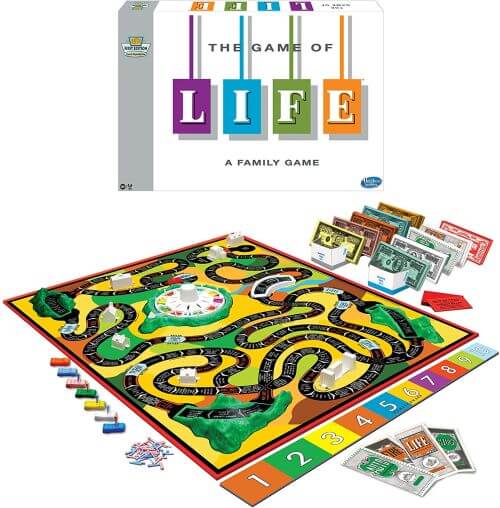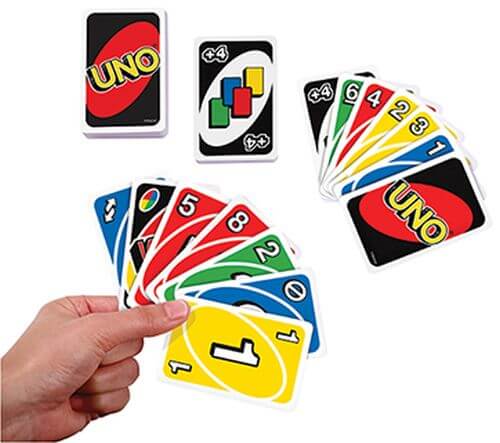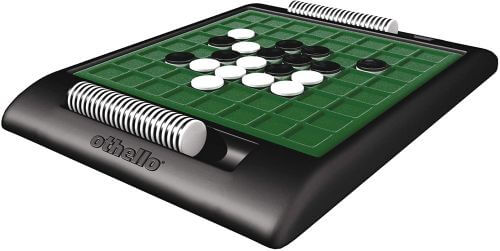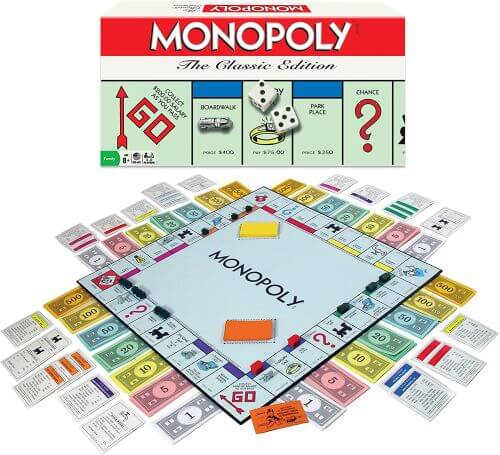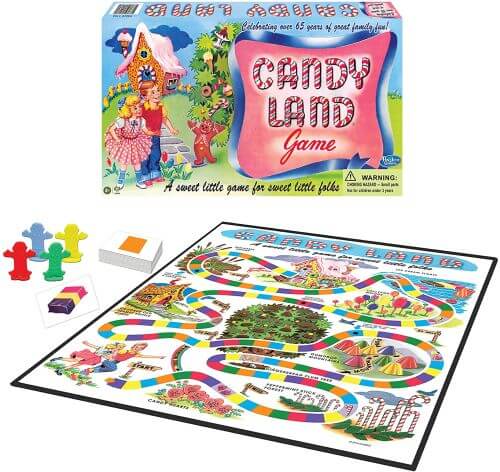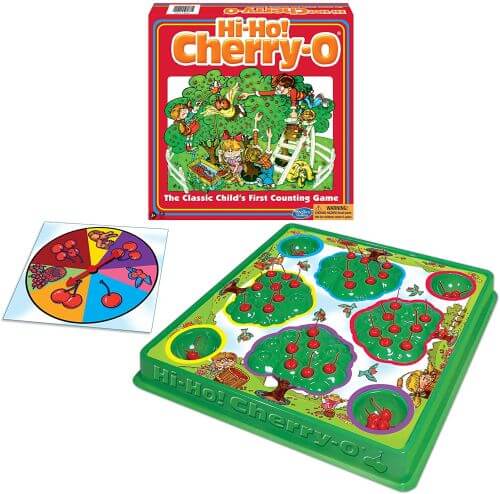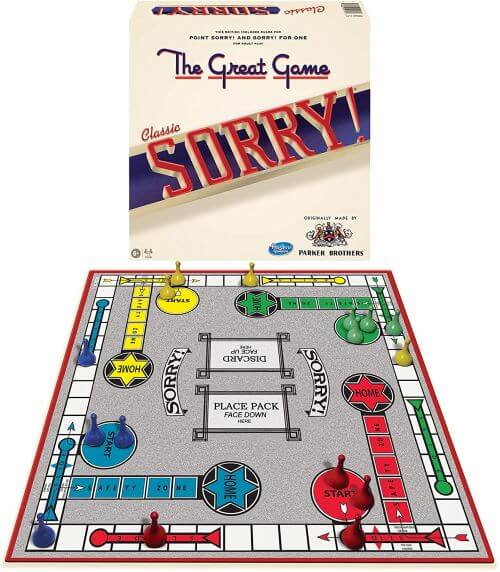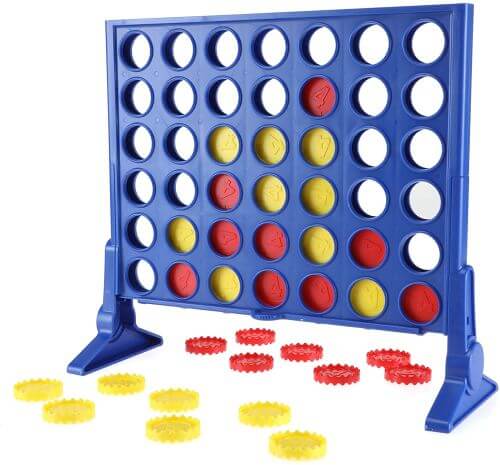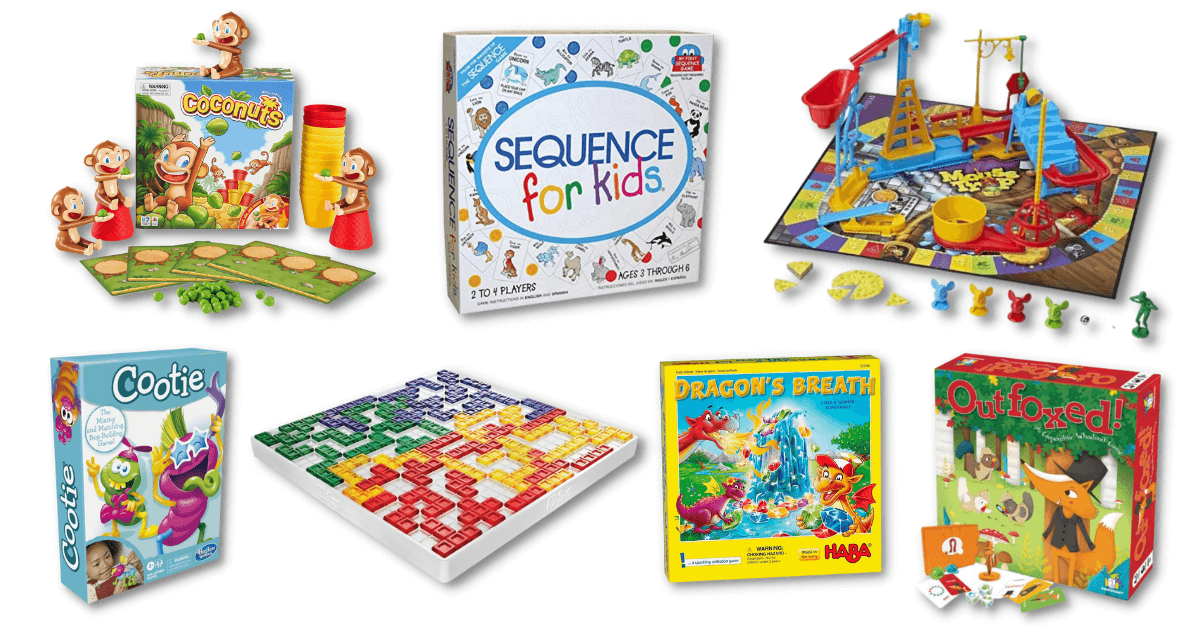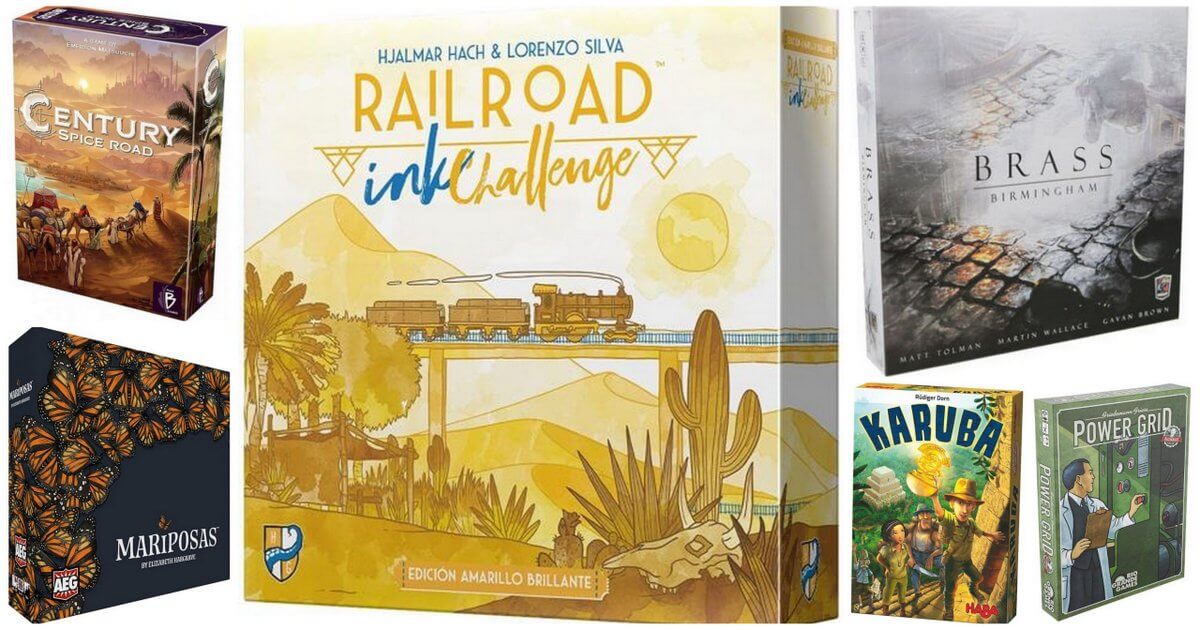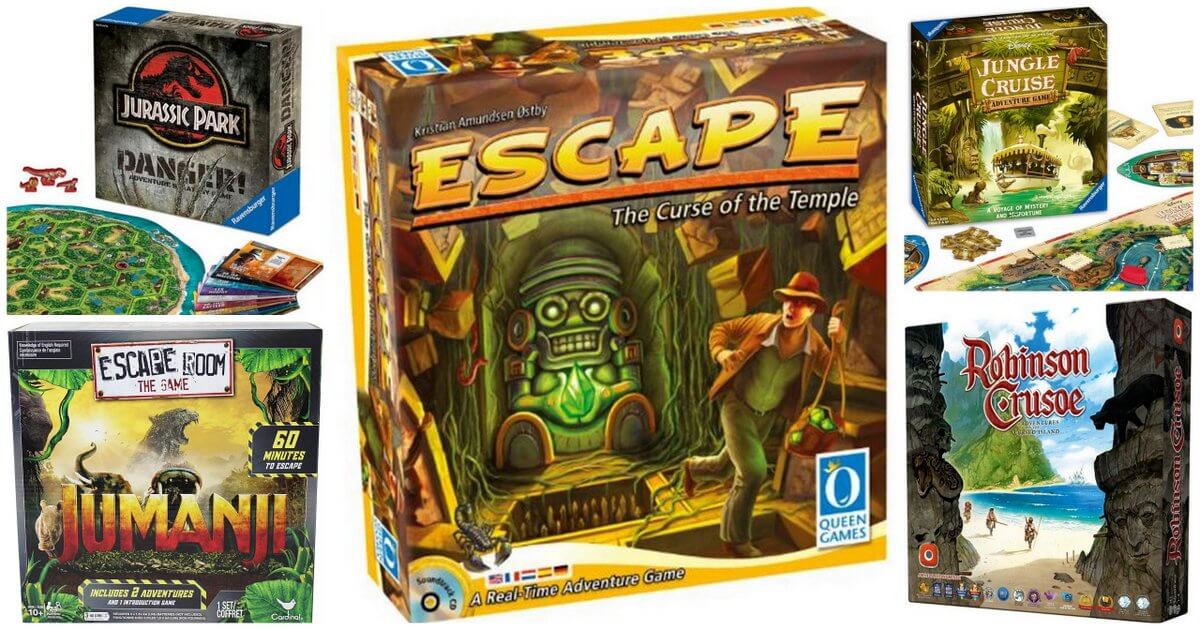Family game nights have been around for a very long time. From parlor games like charades in the old days to video console bowling tournaments in the 21st century, families have played games together for centuries. We asked our Facebook fans to share the classic games they loved as children that they've now started to play with their own kids. Along with true golden oldies like chess and checkers, they named the choices here as some of their top pics. These classic games are just as much fun to play now as they were when you were young!
We use Amazon affiliate links to recommend products we trust and love, so we might earn a small commission if you decide to purchase. However, we believe in giving back as a company, so we'll be donating these profits back to great nonprofits making a difference in the world.
1. Scrabble
Get your kids to put down their phones and play the game that inspired Words With Friends! Use the letter tiles to spell words, building off other words already on the board. Play strategically to land your letters on bonus tiles to rack up lots of extra points. The terrific thing about Scrabble is that even younger kids can play, adjusting the game difficulty to their own vocabulary. If you like Scrabble, you might also like another classic, Upwords. (2-4 players, ages 8+)
2. Clue
The original Whodunnit that inspired lots of other classic games, Clue is just as much fun now as it was when you were a kid. There's been a murder! Roll the die, move around the board, and gather clues that help you figure out it was Professor Plum, in the conservatory, with the rope (or was it?). Play the classic version, or try one of the many themed options now available. (3-5 players, ages 8+)
3. The Game of Life
Did you know The Game of Life (often just called "Life") has been around since 1860? Talk about classic games! The modern version came out in 1960, and includes that spinner you remember so well. Travel the board and live your life from birth to retirement, with college, a job, a house, a family, and more milestones along the way. Collect your paychecks, make investments, and don't forget to buy insurance! Newer versions of the game include easy-setup boards that leave out the plastic buildings, but we love this retro set that looks just like you remember. (2-4 players, ages 8+)
4. Uno
Frantic fast-paced fun is what Uno is all about. Slap down a card from your hand that matches the color or number shown, trying to get rid of all your cards. (Don't forget to say "Uno" when you've only got one card left!) Cards like Skip, Reverse, and Draw Four add extra excitement to this classic family card game. (2+ players, ages 7+)
5. Yahtzee
This is easily the most well-known and beloved dice game around. Players roll the dice up to three times for each round, then choose the best option on their scorecard. Special combinations like straights, a full house, and three or four of a kind earn you higher points. Roll five of the same number, and you get Yahtzee (and 50 points)! This one is fun on your own, too. (Ages 8+, 1+ players)
6. Othello
Based on an earlier game invented in 1883 called Reversi, Othello is easy to learn. One player uses the white side of the tokens, while the other uses the black side. The goal is to turn as many tokens to your color as possible. To flip tokens, surround them with your own color on either end. The game can change in an instant, and the winner is never certain until the very last piece is played! (2 players, ages 7+)
7. Monopoly
Since its debut in 1935, Monopoly has been a family game night classic. Travel the board, buying properties, building houses and hotels, and collecting rent. Be warned: Monopoly marathons can sometimes go on for hours! These days, Monopoly has dozens of versions to choose from, so you can play the original or try a themed option. (2-8 players, ages 8+)
8. Candy Land
This is the first game many kids play, and it remains as popular today as when it first came out. (True story: Eleanor Abbott invented the game while in the hospital recovering from polio. She tested it on other recovering children in the same ward, before sending it to Milton Bradley.) Candy Land doesn't require any reading or math skills, so even the very youngest players can join the fun. (2-4 players, ages 3+)
9. Chutes and Ladders
Chutes and Ladders itself was first issued in 1943, but it's based on an ancient Indian game called Moksha Patam that dates back centuries. It came to England as "Snakes and Ladders" at the end of the 19th century, and has been beloved ever since. The concept is simple: spin the spinner and move your piece. If you land at the bottom of a ladder, you climb up up up! If you land at the top of a chute, though, down you go. The game also encourages good deeds (ladders) and discourages bad behavior (chutes). As long as kids can count to six, they can play this one. (2-4 players, ages 3+)
10. Hi-Ho! Cherry-O
For more than 70 years, Hi-Ho! Cherry-O has been helping kids learn to count. Spin the spinner and remove the correct number of cherries from your tree. Watch out for the dog and the bird, which make you replace two cherries, or the spilled basket, which means you replace all your cherries and start over! Newer versions of the the game include cooperative play options, but this retro edition has the classic gameplay you recall. (2-4 players, ages 3+)
11. Sorry!
Sorry! is based on the even older game Parchisi. Move your pieces around the board, trying to be the first to return them home. If another player lands on the same square, they'll send you right back to the start... sorry! If you like this one, you'll also want to try Trouble, with its beloved Pop-o-Matic Bubble. (2-4 players, ages 6+)
12. Connect Four
Connect Four got its start in the 1970s, and built up a following right away. Players work to be the first drop four checkers in a row horizontally, vertically, or diagonally. Pay attention while you play, because the other player might just sneak up and win the game! (2 players, ages 6+)
These are just some of the classic games you might remember! Others to try: Battleship, Chinese Checkers, Rack-O, Triominos, Trivial Pursuit, Risk, Boggle, and Stratego.

